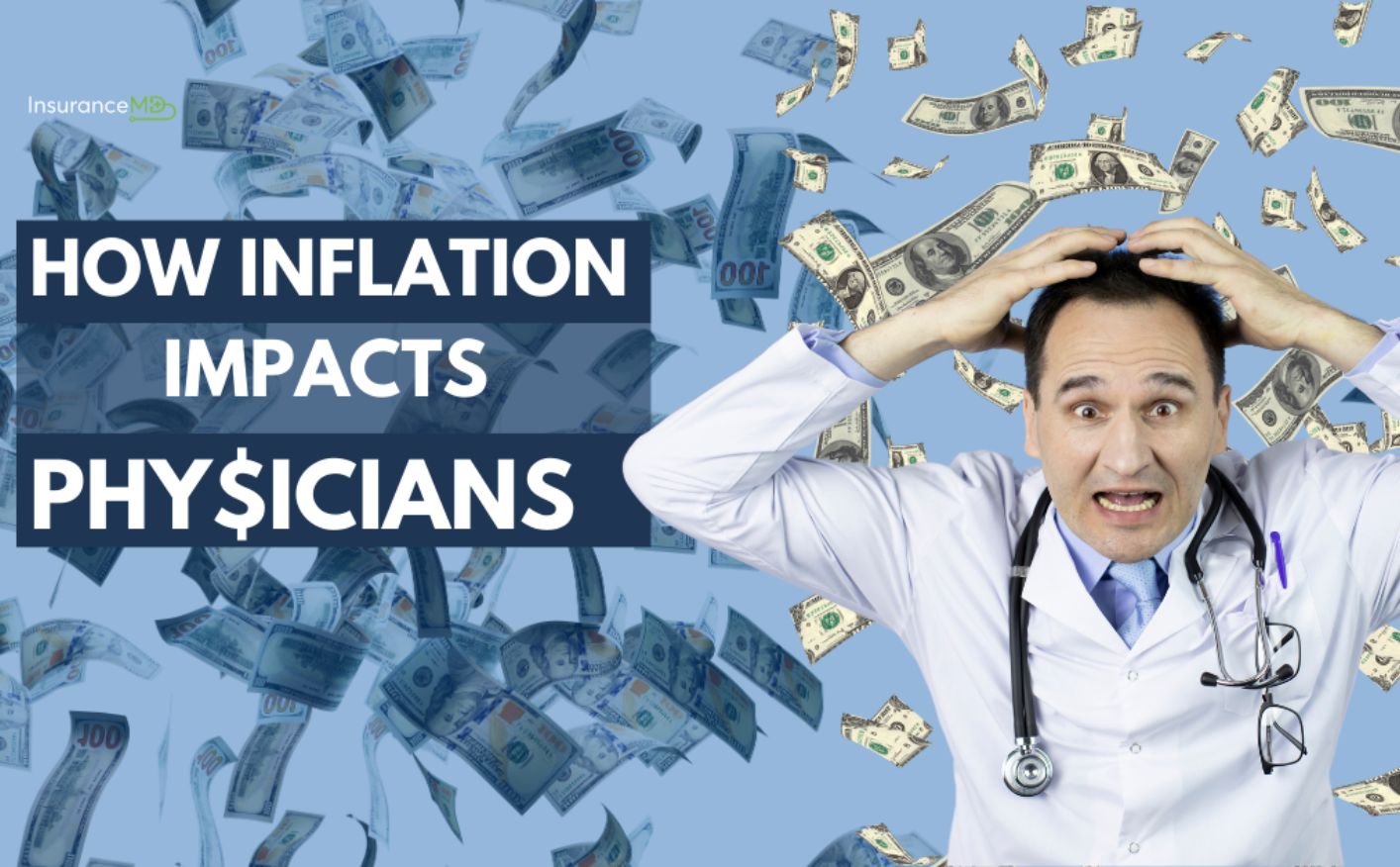Inflation, the gradual increase in the general price level of goods and services, is a phenomenon that affects individuals, families, and industries across the United States. Among those who feel its impact acutely are physicians and their families. This article explores the multifaceted effects of monetary inflation on physicians, their families, careers, and the healthcare system. We will delve into strategies for combating inflation, its potential influence on students’ decisions to pursue a medical career, and the implications for Doctors Disability Insurance.
The Financial Impact on Physicians and Their Families
Inflation can have a profound impact on the financial well-being of physicians and their families. Here are some key areas where the effects are felt:
Erosion of Real Income
One of the most significant effects of inflation is the erosion of real income. While physicians are generally well-compensated, the purchasing power of their income diminishes as prices rise. This can lead to financial stress as it becomes more challenging to maintain the same standard of living.
Medical education is expensive, and inflation exacerbates this issue. Tuition fees, textbooks, and other educational expenses continue to rise, contributing to the burden of student loans that physicians and their families often face. This debt can take years, if not decades, to repay, impacting family finances and decisions like buying a home or starting a family.
Inflation affects long-term financial planning, particularly retirement savings. Physicians must account for the increasing cost of living when planning for retirement, which may require more substantial retirement savings. Failing to do so can result in financial insecurity during retirement years.
The rising cost of healthcare services affects both physicians and their families. As patients, they may encounter higher out-of-pocket expenses, while as providers, they may witness the complexities of insurance reimbursements and affordability challenges for their patients.
Strategies to Combat Inflation
To navigate the effects of inflation effectively, physicians and their families can implement several strategies:
Cost-Efficient Practices
In their medical practices, physicians can explore cost-efficient strategies without compromising patient care. Efficient operations can help maintain profitability without the need to increase fees excessively.
Physicians can negotiate their employment contracts or fee schedules with insurance providers to secure fair compensation that reflects the challenges posed by inflation. Diversifying income sources, such as engaging in part-time work or consulting, can help supplement earnings, providing an additional buffer against inflation’s effects.
Effects on Physicians’ Careers
Inflation can influence various aspects of physicians’ careers:
Burnout and Early Retirement
Financial pressures stemming from inflation can contribute to physician burnout or lead some to consider early retirement or alternative career paths to maintain their desired standard of living. High education costs and the prospect of substantial debt may discourage students from pursuing a medical career, potentially exacerbating the shortage of physicians in the long run.
Impact on Healthcare in the United States
The cumulative effects of inflation on physicians and the healthcare system can have broader implications:
Quality of Care
As physicians face financial pressures and potential burnout, the quality of care provided to patients may be compromised. A shortage of experienced medical professionals could also impact healthcare quality. Rising healthcare costs, driven in part by inflation, can affect patients’ access to medical services. High medical fees may deter individuals from seeking necessary care, further straining the healthcare system. The duration and intensity of inflation are difficult to predict accurately. Inflation rates depend on various economic factors, including government policies, global events, and consumer behavior. Economists and policymakers continually monitor these factors, but there is no definitive timeline for when inflation will subside.
Effects on Doctors Disability Insurance
Physicians Disability Insurance is not immune to the effects of inflation:
Premiums
As inflation raises the cost of living, it can also impact the premiums physicians pay for disability insurance. Insurers may adjust premiums to account for the increasing risk associated with higher living expenses. Inflation can affect the adequacy of disability insurance coverage. Physicians may need to reassess their policies to ensure they have sufficient coverage to maintain their standard of living in the face of rising costs.
Inflation has multifaceted effects on physicians and their families, impacting their financial stability, retirement planning, and overall quality of life. Strategies such as financial planning, cost-efficiency, and diversified income sources can help physicians navigate these challenges.
The influence of inflation on physicians’ careers and the healthcare system raises concerns about the quality of patient care and access to healthcare services. Additionally, it may deter some individuals from pursuing a medical career due to the financial burdens associated with medical education.
While it is challenging to predict when inflation will subside, proactive financial planning and advocacy efforts within the medical community are essential for mitigating its adverse effects. Physicians and policymakers alike must work collaboratively to ensure that the healthcare system remains resilient in the face of economic fluctuations and continues to provide high-quality care to patients.

 800-538-3767
800-538-3767
